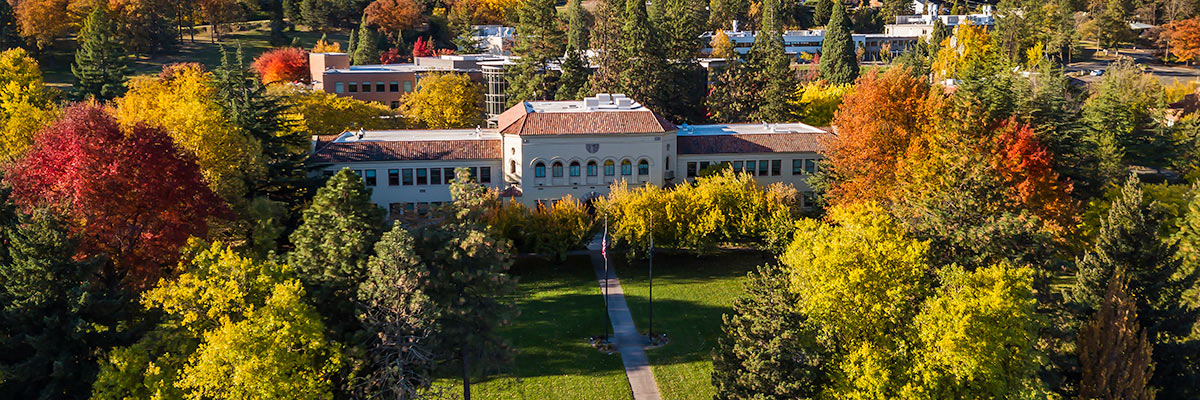SOU Land Acknowledgment
- be_ixf; php_sdk; php_sdk_1.4.18
- 34 ms
- iy_2026; im_01; id_29; ih_17; imh_28; i_epoch:1.7697364928E+12
- ixf-compiler; ixf-compiler_1.0.0.0
- py_2025; pm_10; pd_08; ph_06; pmh_56; p_epoch:1.75993177325E+12
- link-block; link-block_link-block; bodystr
- pn_tstr:Wed Oct 08 06:56:13 PST 2025; pn_epoch:1.75993177325E+12
- 0 ms
- be_ixf; php_sdk; php_sdk_1.4.18
- https://sou.edu/land/resources/
- https://sou.edu/land/resources/

Resources: SOU Land Acknowledgment
Glossary of Terms:
- Decolonization may be defined as the active resistance against colonial powers, and a shifting of power towards political, economic, educational, cultural, psychic independence and power that originate from a colonized nations’ own indigenous culture. This process occurs politically and also applies to personal and societal psychic, cultural, political, agricultural, and educational deconstruction of colonial oppression.Per Eve Tuck and K. Wayne Yang: “Decolonization doesn’t have a synonym”; it is not a substitute for ‘human rights’ or ‘social justice’, though undoubtedly, they are connected in various ways. Decolonization demands an Indigenous framework and a centering of Indigenous land, Indigenous sovereignty, and Indigenous ways of thinking.
Source: The Movement for Black Lives and What Is Decolonization and Why Does It Matter? – Eric Ritskes
- Indigeneity: Indigenous populations are composed of the existing descendants of the peoples who inhabited the present territory of a country wholly or partially at the time when persons of a different culture or ethnic origin arrived there from other parts of the world, overcame them, by conquest, settlement or other means and reduced them to a non-dominant or colonial condition; who today live more in conformity with their particular social, economic and cultural customs and traditions than with the institutions of the country of which they now form part, under a state structure which incorporates mainly national, social and cultural characteristics of other segments of the population which are predominant.Example: Maori in territory now defined as New Zealand; Mexicans in territory now defined as Texas, California, New Mexico, Arizona, Utah, Nevada and parts of Colorado, Wyoming, Kansas, and Oklahoma; Native American tribes in territory now defined as the United States.
Source: United Nations Working Group for Indigenous Peoples
- Settler Colonialism refers to colonization in which colonizing powers create permanent or long-term settlement on land owned and/or occupied by other peoples, often by force. This contrasts with colonialism where colonizer’s focus only on extracting resources back to their countries of origin, for example. Settler Colonialism typically includes oppressive governance, dismantling of indigenous cultural forms, and enforcement of codes of superiority (such as white supremacy). Examples include white European occupations of land in what is now the United States, Spain’s settlements throughout Latin America, and the Apartheid government established by White Europeans in South Africa.Per Dino Gillio-Whitaker: “Settler Colonialism may be said to be a structure, not an historic event, whose endgame is always the elimination of the Natives in order to acquire their land, which it does in countless seen and unseen ways. These techniques are woven throughout the US’s national discourse at all levels of society. Manifest Destiny—that is, the US’s divinely sanctioned inevitability—is like a computer program always operating unnoticeably in the background. In this program, genocide and land dispossession are continually both justified and denied.”
Source: Settler Fragility: Why Settler Privilege Is So Hard to Talk About, Dina Gilio-Whitaker
Map of Oregon’s Indigenous Communities
Map of Territories from Native Land.
Interactive Time-Lapse Map shows how the U.S. took more than 1.5 billion acres from Native Americans.
Indigenous Communities in Oregon
The links below are the websites of the nine federally recognized Oregon Tribes:
- Burns Paiute Tribe
- Confederated Tribes of the Coos, Lower Umpqua and Siuslaw Indians
- Confederated Tribes of the Grand Ronde Community of Oregon
- Confederated Tribes of Siletz Indians
- Confederated Tribes of the Umatilla Indian Reservation
- Confederated Tribes of Warm Springs
- Coquille Indian Tribe
- Cow Creek Band of Umpqua Tribe of Indians
- Klamath Tribes
The histories of Indigenous communities in Oregon:
- Council of Table Rock by Jeff LaLande from the Oregon Encyclopedia
- Takelma from Wikipedia entry
- Indigenous History of Oregon from Pacific University in Washington County
- American Indian Languages of Western Oregon from Lane Community College
The links below are from the website Native Land Digital, a Canadian not-for-profit organization designed to be Indigenous-led, with an Indigenous Board of Directors who oversee and direct the organization.
Rogue Valley Region (Cession 312):
Media:
OPB, ‘Broken Treaties, An Oregon Experience’ (59 minute documentary). Hundreds of books exist about the Lewis and Clark expedition and the decades of pioneers who followed them West. But even today, most Oregonians don’t know much about the people who had settled here centuries before “the settlers” came. “Broken Treaties” introduces viewers to the tribes of our state and explores a thread of the Oregon story that hasn’t been told very well over the years.
Books:
- Beckham, Stephen Dow. Requiem for a People: The Rogue River Indians and the Frontiersmen. Norman: University of Oklahoma Press, 1971.
- Nathan Douthit. “Joseph Lane and the Rogue River Indians: Personal Relations Across a Cultural Divide.” Oregon Historical Quarterly, 95, no. 4, Winter 1994-95.
- Schwartz, E. A. The Rogue River Indian War and Its Aftermath, 1850-1980. Norman: University of Oklahoma Press, 1997.
Office for Equity, Diversity & Inclusion
Southern Oregon University
1250 Siskiyou Blvd.
Ashland, OR 97520
edi@sou.edu
